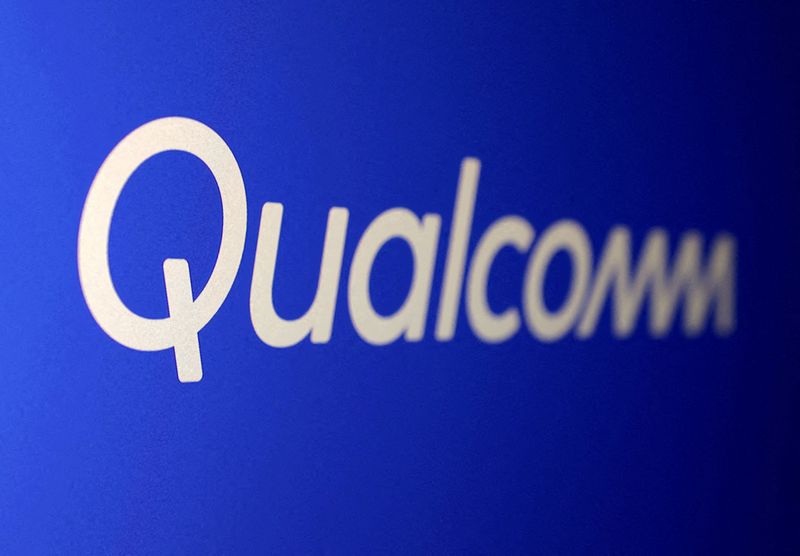By Tom Hals and Max A. Cherney
WILMINGTON, Delaware (Reuters) -A legal battle between Arm and Qualcomm (NASDAQ:QCOM) that could disrupt a wave of artificial intelligence PCs began on Monday, as the chipmakers laid out contrasting versions of a contract dispute, describing it as a matter of corporate deception or an attempt to stifle competition.
The crux of the litigation is a clash over Qualcomm’s license agreement for the use of Arm’s intellectual property and Qualcomm’s 2021 $1.4 billion acquisition of chip startup Nuvia.
Qualcomm used Nuvia’s designs to create new low-powered AI PC chips launched earlier this year that Microsoft (NASDAQ:MSFT) and others expect will help the Windows operating system regain ground lost to laptops made by Apple (NASDAQ:AAPL).
Arm has argued its contracts have long required customers negotiate some license terms when they buy a firm that also uses Arm’s technology.
“We’ve never had an issue like this,” Arm Chief Executive Rene Haas said on the witness stand.
On direct questioning from an Arm attorney, Haas focused on the licensing dispute and efforts to reassure customers the lawsuit was not a dramatic change in Arm’s strategy. He also told jurors that he told customers there was a risk in using Nuvia technology, given the litigation.
Qualcomm’s attorney used cross examination of Haas to focus on internal documents and communications to show there was worry over losing tens of millions of dollars in annual revenue due to the Qualcomm deal for Nuvia.
Earlier in the day, Arm’s attorneys said the case would aim to show that Qualcomm knew it was using Arm’s technology without permission. Qualcomm’s attorneys, by contrast, said it would try to show that Arm wanted to boost revenues by reaping higher royalty rates even as its technology was falling behind.
Other expected witnesses at the one-week trial include Qualcomm CEO Cristiano Amon and Nuvia founder Gerard Williams, who was a senior executive in Apple’s chip unit and is currently a Qualcomm vice president.
Nuvia and Qualcomm each had licensing agreements with Arm but with different financial terms. To use the designs based on Nuvia technology, Arm has said Qualcomm must renegotiate the Nuvia contract terms.
Qualcomm has said that its “well-established license rights” cover any custom-designed central processing units (CPUs) and is “confident those rights will be affirmed.”
William Abbey, Arm’s chief marketing officer, was the first witness. He told jurors Arm had terminated the Nuvia agreement rather than consent to transfer it to Qualcomm and that Arm was justified in doing so.
Qualcomm’s attorney, Bill Isaacson, tried to show the jury that Abbey’s testimony had shifted since he was questioned under oath in a deposition in 2023, when Abbey testified that Nuvia, not Arm, terminated the licensing agreement.
“You say things you don’t fully recollect,” he told the eight jurors, referring to the 2023 testimony. “I made a mistake.”
Arm has argued that Qualcomm should be required to destroy the Nuvia designs and has not asked for monetary damages.
According to Bernstein analyst Stacy Rasgon, Qualcomm pays Arm roughly $300 million a year in fees.
Britain-based Arm is owned by SoftBank (TYO:9984) Group, which listed Arm in the U.S. in 2023.



